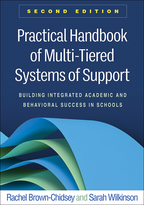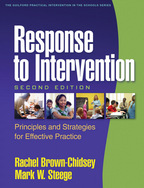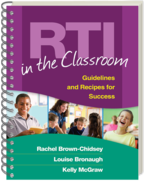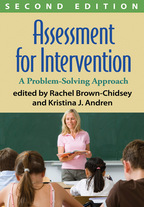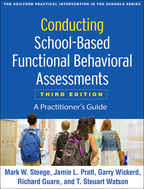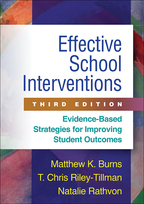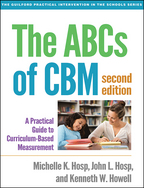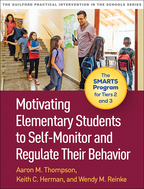Practical Handbook of Multi-Tiered Systems of Support
Second Edition
Building Integrated Academic and Behavioral Success in Schools
Rachel Brown-Chidsey and Sarah Wilkinson
HardcoverPaperbacke-bookprint + e-book
Hardcover
pre-orderDecember 19, 2025
ISBN 9781462559022
Price: $78.00 386 Pages
Size: 7" x 10"
Paperback
orderDecember 31, 2025
ISBN 9781462559015
Price: $52.00386 Pages
Size: 7" x 10"
e-book
orderDecember 19, 2025
PDF and Accessible ePub ?
Price: $52.00 386 Pages
ePub is Global Certified Accessible
print + e-book $104.00 $62.40
orderPaperback + e-Book (PDF and Accessible ePub) ?
Price: 386 Pages
ePub is Global Certified Accessible
Professors: Do you need to make an adoption decision or update your syllabus for the next term? Request a set of page proofs now for immediate review.
The reproducible materials can be downloaded and printed in PDF format.
The reproducible materials can be downloaded and printed in PDF format.
Now in a revised and expanded second edition, this established practitioner resource and text provides a framework for integrating schoolwide academic and behavioral supports to maximize outcomes for K–12 students. Best practices for developing and sustaining an integrated multi-tiered system of supports (iMTSS) are addressed, with attention to timely issues and diverse populations, including students who are English learners. Chapters cover team building, implementation science, evidence-based instruction, problem solving, assessment, and more. The book’s utility is enhanced by a chapter-length case study, reproducible/downloadable tools, and boxed reflections and how-to recommendations from experienced implementers.
New to This Edition
New to This Edition
- Increased focus on integrating academic and behavioral supports into one seamless system across tiers for students from diverse backgrounds.
- Chapter on improving student engagement and attendance.
- Chapter on the role of online learning within an iMTSS.
- Chapters on catch-up growth and Tier 2 supplemental instruction.

